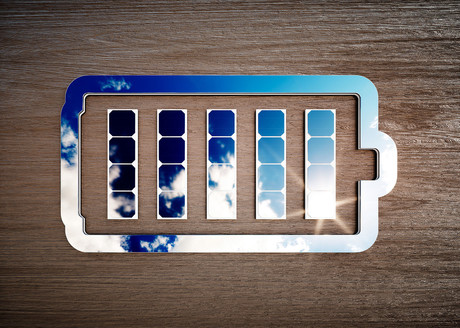Australia to lead lithium-ion battery recycling charge

A new battery recycling industry to tackle Australia’s annual 3300 tonnes of lithium-ion battery waste could be on the cards, according to a new report.
The report, Lithium battery recycling in Australia, says Australia could lead the world in the re-use and recycling of lithium-ion batteries. The report addresses the growing demand for lithium-ion technology, currently used in vast quantities in electronic and household devices.
Low battery recycling rates can be overcome through better understanding of the importance of recycling, improved collection processes and by implementing ways to efficiently recycle materials. An effective recycling industry could also stabilise global lithium supplies to meet consumer demand, the report says.
Currently only 2% of Australia’s annual 3300 tonnes of lithium-ion battery waste is recycled, and this waste is growing by 20% a year and could exceed 100,000 tonnes by 2036. If recycled, 95% of components can be turned into new batteries or used in other industries. By comparison, of the 150,000 tonnes of lead-acid batteries sold in 2010, 98% were recycled.
The majority of Australia’s battery waste is shipped overseas, and the waste that remains is left in landfill, leading to potential fires, environmental contamination and risk to human health.
CSIRO research is supporting recycling efforts, with research underway on processes for recovery of metals and materials, development of new battery materials and support for the circular economy around battery re-use and recycling.
“As a world leader in the adoption of solar and battery systems, we must responsibly manage our use of lithium-ion technology in support of our clean energy future; CSIRO has set out a pathway to do this,” CSIRO battery research leader Dr Anand Bhatt said.
“The value for Australia is three-fold. We can draw additional value from existing materials, minimise impact on our environment and also catalyse a new industry in lithium-ion recycling.”
Dr Bhatt and his team are working with industry to develop processes that can support the transition to domestic recycling of lithium-ion batteries.
“The development of processes to effectively and efficiently recycle these batteries can generate a new industry in Australia. Further, effective recycling of lithium batteries can offset the current concerns around lithium security,” said Dr Bhatt.
Australian Battery Recycling Initiative CEO Libby Chaplin said the report came at a critical time.
“Currently we are racing towards a world where lithium batteries are a very big part of our energy supply, yet we have some real work to do to ensure we are able to recycle the end product once it has reached its use-by date,” she said. “The CSIRO report provides critical information at an opportune time given the discussions around how to shape a product stewardship scheme for the energy storage sector.”
The report also found that research, government and industry must work closely to develop standards and best-practice solutions to this issue.
Omron and Cognizant partner on IT–OT integration
Omron Corporation and Cognizant have announced they have signed a strategic partnership to...
Greensteel Australia to build next-generation steel mill
Greensteel Australia has announced it has placed an order to purchase equipment for its...
Researchers design water filter that removes PFAS molecules
Researchers at Monash University have developed a water filtration membrane that effectively...








